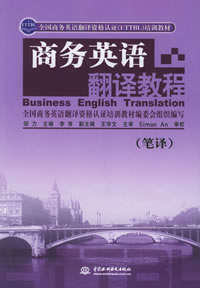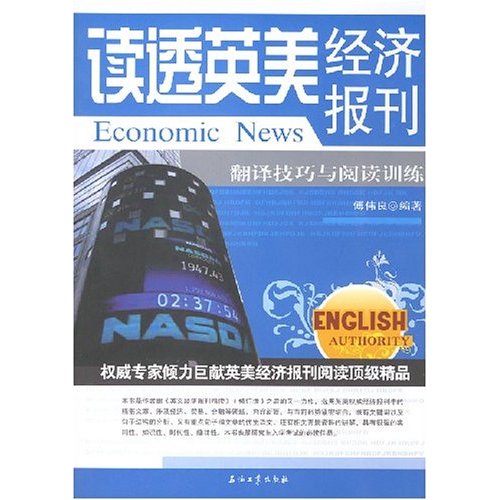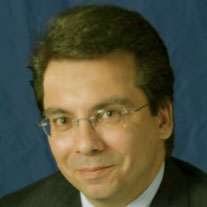书面翻译与口译培训核心步骤
作者:古龙 2009-07-04




语际翻译公司 转载请注明https://www.scientrans.com
∗本栏目部分文章内容来自互联网,部分已经过本站编辑和整理,如有版权事宜请联系Email/MSN jesczhao@hotmail.com
The present output of millions of translation pages in the world on a daily basis (Sherr, 2004, and González, 2005) as well as a constant demand for qualified, knowledgeable interpreters and translators require diversification and multi-training. The U.S. and other countries in the Americas cannot afford to ignore such 21st century reality. To do so would mean loss of competitiveness, loss of business and fatal lagging behind strong world competitors and those who are emerging as the economic giants of the next few years. Among those competitors and giants we can find the European Union, The BRIC group of countries (Brazil, Russia, India and China), Japan and Korea.
The need to incorporate more and better T-I training courses in our higher education system can be met. New manuals and materials can and should be created to accomplish such objective, and such manuals and materials should reflect the current and developing tendencies of the languages in contact. The future for translation and interpretation, based on past and present tendencies, appears to be guaranteed. Such future involves not only scholars and linguists who choose this beautiful and challenging field of endeavor, but also specialists in other fields who often need translation and interpreting skills in one or more foreign languages. Such future is already at our door!
Notes
1 When nine new languages were incorporated in the European Union organizations in 2004, there had been 245 translators from different departments already studying those languages since 1998. Conversely, for translators recruited from new member states, EU training is provided, if needed, in the most widely used languages, information technology and subject matters most often demanded. More information is available at EU web pages on its directorates, missions and overviews.
2 Reference here is made to Havana University and Moscow Linguistic University, formerly known as "Maurice Thorez" Moscow State Pedagogical Institute of Foreign Languages, where interpreters, translators and teachers were trained. Many of their graduates served in the Soviet and Russian governments as well as at the United Nations Organizations. Pavel Palazchenko, interpreter for Gorbachev and Shevardnadze, is one of their best known graduates and professors in modern times.
3 A bilingual person, according to Catford, is able to handle two (or more) languages, sometimes quite well, but there is always one language which is predominant over the other (s). An ambilingual person, on the other hand, is one who is capable of handling two (or more) languages at the same level of complexity and in any field of endeavor. The latter is, however, quite uncommon.
4 The term text is used in this work with the meaning of any segment of speech, be it oral or written, one word or a whole book: Fire! He's my brother; їme amas?; La revolución mexicana.
5 In the first examples, the speakers were of Mexican origin, and claimed to often travel between border cities in Mexico and the U.S. Due to the use of Code Switching as well as special "border" terminology, their idiolect could be almost incomprehensible to a speaker of "only" English or Spanish. In the other example, the speaker was from Miami, where there is a strong influence of Cuban variants, albeit not by far the only ones. Tens of thousands of Haitians, Nicaraguans, Colombians and other Hispanics also influence both Spanish and Spanglish in Miami and Miami-Dade County in South Florida. Rufero (techero/reparador de techos in Spanglish) can also mean, in Cuban slang, a bus driver (In Cuba, chofer de guagua, ómnibus) from rufa (bus).
6 Another example of "variants" or sub-variants of Spanish in our Hispanic countries: A Quintana Roo University colleague, while studying at a U.S. university for his Master's degree and taking translation-interpretation classes with this author, was shadowing me in court as part of his training. One interpreting act was performed between a U.S. Public Defender and a Mexican defendant. The Mexican gentleman spoke Spanish, but he used terms in his speech that belonged either to his "border" variant or to Spanglish. When the interview was over, I asked my Mexican colleague if he had understood everything and he confessed there were some terms used by his fellow countryman he could not understand at all!
7 This note refers to the Medical Interpreter's Bilingual Manual, published in Augu
- 评论
- seme:文章内容文章内容文章内容文章内容文章内容文章内容文章内容文章内容文章内容 章内容文章内容文章内容文章内容文章内容
- seme:文章内容文章内容文章内容文章内容文章内容文章内容文章内容文章内容文章内容 章内容文章内容文章内容文章内容文章内容

- 日常生活中常用的英语五星级句子
2009-7-11 23:00:38 - 熟练地运用英语的一个重要方面就是学习并掌握英语本族者常用的生动、的活泼的习语。 1. After you.你先请。这是一句很常用的客套话,在进/出门,上车得场合你都可以表现一下。好象现在女士不愿意你这么做,特别是那些女权主义者,我还记得这么一段话:一个女士对...
- 英语中各种数字的读法
2009-7-11 22:59:44 - (1)年号的读法: 1979←→nineteen seventy-nine or nineteen hundred(and) seventy-nine; (2)电话号码、货币的读法: 1023←→one o two three;1227←→one dou...
- 第四届IEEE生物信息与生…
2009-6-30 19:42:01 - 基本信息 主办单位: 四川大学,IEEE生物医学工程协会(EMBS) 承办单位 开始日期 2010/06/18 结束日期 截稿日期 2009/1...
- 第九届全国光电技术学术…
2009-6-30 19:35:58 - 基本信息主办单位: 中国宇航学会光电技术专业委员会承办单位 开始日期 2009/11/01结束日期 截稿日期 2009...
















